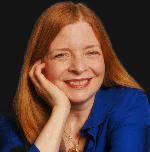Author Solutions CEO Wants to Talk to Writers’ “Guilds”
 Posted by Victoria Strauss for Writer Beware
Posted by Victoria Strauss for Writer Beware
In a video posted to YouTube on Friday, and in an accompanying press release, the CEO of Author Solutions, Kevin Weiss, invited the Romance Writers of America, the Mystery Writers of America, and the Science Fiction and Fantasy Writers of America (which he incorrectly dubbed the “Science Fiction Writers’ Association”–though I can’t fault him for this, as PW regularly gets it wrong as well) to sit down with him and other AS representatives to discuss the recent debate over AS’s “partnerships” with Harlequin and Thomas Nelson. (Weiss didn’t mention another professional writers’ group, NINC, which issued a strongly-worded statement in response to the debate.)
(To recap, if you have been living in a cave for the past six months: This fall, Harlequin and Nelson–both major commercial publishers–launched “self-publishing” divisions, whereby aspiring authors could pay a fee and have their books formatted, printed, and distributed online. Both divisions were run by AS. A storm of public criticism ensued, prompting RWA, MWA, and SFWA to issue public statements and to de-list Harlequin, Nelson, or both.)
From the press release:
“I’m inviting the three writers guilds who’ve expressed the greatest objections with the partnerships we’ve established with traditional publishing to sit down with us and discuss how we can improve the opportunity for their writers and the choice for readers,” Weiss said in the statement.
In response to ASI’s announcements of partnerships with traditional publishers, the three writer’s guilds led a campaign to discredit the publishers involved in creating these groundbreaking opportunities, even going so far as to de-list one as a qualified publisher. Weiss believes the guilds may not fully understand the role self-publishing can play in expanding options for writers and consumers while at the same time providing benefits to traditional publishers who are in the midst of tremendous upheaval.
“Not only do I want to discuss the differences they have with our business, as well as the partnership models that we’re engaging with traditional publishing, but I also want to discuss the things that we are doing and plan to do to advance the cause of their members on a daily basis,” Weiss said.
In the video, Weiss claims that “choice is under attack,” citing concerns that cheap ebooks and book retailers’ price wars will undercut publishers’ revenues, resulting in fewer chances for new authors and fewer choices for readers. The implication is that AS addresses that problem by making publishing services available to all (though I would find this more convincing if so many of AS’s services weren’t predatory and overpriced–there’s a good analysis at Shiloh Walker’s blog–and if, by Mr. Weiss’s own admission, the average sales for an AS title didn’t top out at 150).
Weiss also gets a couple of things wrong. I’ve already mentioned SFWA’s name; also, RWA, MWA, and SFWA didn’t de-list just one publisher, but both–MWA and SFWA by implication, since Thomas Nelson doesn’t really publish in their genres, RWA explicitly, by removing Nelson as well as Harlequin from its conference-eligible publisher list. Plus, the press release’s claim that RWA, MWA, and SFWA “led a campaign to discredit the publishers involved” is hyperbolic. The writers’ groups made strong responses, but most of the outcry came from individual writers (and involved Harlequin; Nelson more or less got a free pass), and it was largely the outcry that spurred the statements, not the other way around.
I’d also love to know exactly what it is that AS does to “advance the cause” of RWA, MWA, and SFWA members “on a daily basis”–especially given that authors cannot qualify for membership in MWA and SFWA on the basis of self-published books–but I guess Weiss is saving that for the sit-down.
Will a sit-down, if it happens, be productive? Good question. Part of the objection to the AS/Harlequin/Nelson “partnerships” was the misleading way in which they were presented–seriously overstating the benefits of self-publishing for many if not most authors, using the carrot of possible transition to commercial publishing as a hook to draw in customers–as well as, in Nelson’s case, a promise of referral fees for agents who steered authors its way, plus a truly exorbitant cost. Given that high costs and less-than-transparent presentation are at the core of AS’s services, I don’t think that’s likely to change. Also, can there ever be a meeting of the minds between professional commercial writers’ groups and a company that wants to present fee-based publishing as an “indie revolution?” Part of the problem, I think, is that Weiss is speaking a different language.
I don’t want to be unduly negative. There are certainly ways in which AS could benefit RWA, MWA, and SWFA members–by providing a reasonable, efficient way for members to bring their out-of-print works back into circulation, for instance. And, simply as a matter of pragmatism, I do think that we will have to get used to at least some degree of cohabitation between commercial publishing and fee-based publishing–since commercial publishers need revenue and fee-based publishing is (for now) extremely lucrative. If, in these difficult times of economic pain and technological transition, launching a fee-based publishing division could help a commercial publisher maintain its core publishing operation–and if the fee-based division were straightforward, reasonably-priced, and transparent (i.e., no bogus farm-team promises, or referral fees, or exaggerated portrayals of the potential for success)–I might be able to make peace with that.
Is AS the right company to provide those services, though? Do publishers even need to hire an outside company to set fee-based publishing divisions up for them? Those are whole other questions.


